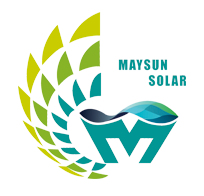Photovoltaic Roof Leasing Model
How Can Companies Gain Environmental Benefits Without Any Investment?
Two Main Cooperation Models for Commercial Rooftop Photovoltaics
In order to meet the diverse needs of businesses in energy cost control and asset value enhancement, the main cooperation models for commercial rooftops currently include the self-consumption model and the roof lease model with zero investment. Enterprises can choose the most suitable solution according to their consumption profile and investment goals, to promote both their energy transition and economic returns.
Self-Consumption Model
Ideal for companies seeking to reduce electricity costs through a preferential solar tariff via a PPA.
- Use of solar electricity produced on the company’s rooftop at a discounted rate
- PV system installed by a third-party investor
- Signing of a Power Purchase Agreement (PPA) at a preferential rate
- System transfer or renewal at the end of the contract
Zero-Investment Roof Lease Model
Suitable for companies that do not consume the energy themselves, allowing them to lease their rooftops for a stable rental income.
- The company leases its roof to an investor
- The investor operates the roof to produce and sell electricity to the grid
- The company receives a regular rent payment
- No impact on electricity bills, ideal for low-consumption warehouses
Applicable Company Profiles
- Companies, factories, or logistics centers with large rooftops
- Sectors with high daytime electricity consumption: industry, retail, logistics
- SMEs that do not wish to make an initial investment in photovoltaics
Concrete Advantages of the Investment-Free Photovoltaic Lease Model
Zero Investment, Multiple Benefits: The Photovoltaic Solution for Businesses
- Start Without Down Payment: No upfront investment required, easing the company’s cash flow
- Optimization of Energy Costs: Sustainable reduction of electricity bills through preferential rates
- Strengthening of Sustainable Image: Improved ESG rating and enhanced corporate social responsibility
- Outsourced Management: Installation and maintenance handled by a professional third-party provider
- Stabilization of Energy Prices: Protection against market price fluctuations, controllable energy costs


What Criteria Must Be Met to Lease Your Roof for a Solar Project?
- Size and Load Capacity: The roof must offer sufficient area and structural strength to safely install solar panels and ensure long-term stable operation.
- Orientation and Tilt Angle: A south-facing orientation with an appropriate tilt angle is crucial to optimize solar yield.
- Free from Shading: Trees, buildings, or other structures should not cast shadows that could impair system performance.
- Legal Compliance: Required permits such as building approvals or co-owner consent (in the case of shared roofs) must be obtained.
- Special Restrictions: Factors like load-bearing limitations or heritage protection may affect the feasibility of the project.
Recommendation: A professional technical and legal assessment should be conducted before signing a contract to ensure the project’s success.
Lorem ipsum dolor sit amet, consectetur adipiscing elit. Ut elit tellus, luctus nec ullamcorper mattis, pulvinar dapibus leo.
Not all roofs are suitable for leasing to photovoltaic projects. The following factors may limit or even exclude feasibility:





Unfavorable Orientation and Tilt
Heavy Shading
Insufficient Load Capacity
Roof Material and Condition
Historical Protection and Aesthetic Regulations
A north-facing roof or an inappropriate tilt angle can significantly reduce the energy output of a photovoltaic system.
If the roof is mostly shaded by surrounding buildings or trees, it can impair the energy production of the solar modules and jeopardize the project’s profitability.
A roof that cannot support the additional weight of a photovoltaic system or contains too many openings (e.g., skylights, chimneys) may not be suitable for a solar lease arrangement.
Some materials are unsuitable for solar installation, and roofs that are too old or in need of repair may compromise the long-term stability of the system.
If the building is listed as a historical monument or subject to strict design regulations, the installation of solar panels may be prohibited.
Simulation of the Economic Return of a Photovoltaic Roof
1. Rental Income
2. Electricity Savings
3. Electricity Resale
4. Total Return

1. Fixed rental income (calculated based on roof area)
- Rental range: €10 to €15/m²/year
- Annual rental income:
- Minimum: €50,000
- Maximum: €75,000
2. Electricity savings (based on production)
- Annual production: 850,000 kWh
- Market price: €0.25/kWh
- Photovoltaic tariff: €0.18/kWh
- Annual savings: approx. €59,500
3. Additional resale income (depending on cooperation models)
- Resale proportion: 30%
- Resale price: €0.10/kWh
- Annual income: approx. €25,500
4. Total return
The company can earn stable rental income of €50,000 to €75,000 from leasing the roof, and depending on the cooperation model, achieve up to €59,500 in electricity bill savings or €25,500 in resale income.
Photovoltaic leasing not only generates stable long-term income, but also reduces energy expenses and increases overall business profitability — all without initial investment, while monetizing an unused roof.




What You Need to Know About Zero-Investment Rooftop Photovoltaic Leasing
Policy Support and Market Developments
Maintenance and Risk Management for Rooftop PV Systems
How to Choose the Right PV Investor
CRE Tenders (France): Subsidies increase profitability and make it easier for companies to access solar energy.
Growth in Europe: Installed rooftop solar capacity could double by 2030, driven by rising corporate demand.
Energy Storage: Combining battery storage with solar systems increases energy independence.
CO₂ Market: PV generation reduces emissions and generates tradable carbon credits.
Insurance: Coverage of weather risks, fire, and technical failures provided by the investor.
Lifespan: 25 to 30 years of guaranteed performance over the full contract term.
Maintenance: Regular cleaning and performance checks.
Structural Inspection: Roof structure is evaluated before installation to ensure safety.
Financial Stability: Strong funding to ensure the long-term success of the project.
Technical Expertise: Proven reference projects and compliance with local standards.
Operational Support: Maintenance, monitoring, and regulatory compliance provided by the investor.
Clear Contract: Clearly defined lease payments, rates, insurance, and responsibilities.
Corporate PV Investments
As a PV system provider and module manufacturer with many years of experience in the German and European market, Maysun Solar has completed over 100 MW of commercial and industrial rooftop projects with local teams. We offer risk-free, high-return photovoltaic solutions for energy-intensive businesses such as German industrial roofs, logistics centers, and data centers. We are not just technology providers, but long-term partners in our clients’ ESG strategies.

High-Efficiency Modules: In-House R&D and Production
Utilizing TOPCon, HJT, and IBC technologies, module efficiency exceeds 21-24%, with a 25-year linear power warranty. Certified by TÜV Rheinland (IEC 61215/61730).

Intelligent System Adaptation
Through AI-based dynamic optimization of modules, inverters, and storage, the system achieves a PR value of over 85% and increases power generation by 10-15%.

European Localized EPC Team
In strategic partnership with renowned European EPC companies, ensuring 100% compliance with grid connection standards and reducing project delivery time by 30%.

Risk Management
- Intelligent O&M: An automated IoT platform provides real-time monitoring of power plant performance and intelligent fault alerts, reducing maintenance costs and workload. Annual O&M costs remain below 2% of power generation revenue.
- Financial-Grade Insurance Coverage: Backed by renowned insurance providers, covering natural disasters and operational losses.
- Professional Certification: Certified by CE, TÜV, and other industry standards, ensuring system safety compliance and compatibility with European building regulations.
The rooftop photovoltaic leasing model offers companies a cost-effective and profitable solution for green energy.
It is especially suitable for businesses seeking to optimize energy costs and strengthen their commitment to sustainable development. With political support and growing market demand, more and more companies are choosing this model to reduce costs in the long term while generating sustainable returns.
The rooftop PV leasing model allows companies to use solar energy without any investment.
It is sufficient to lease out unused roof space to receive either fixed rent or discounted green electricity. All costs for procurement, construction, and maintenance are borne by the investor. This model is widely used on large rooftops of industrial buildings, logistics centers, supermarkets, etc., helping companies reduce costs, increase efficiency, cut CO₂ emissions, meet ESG requirements, and enhance their sustainability image.
